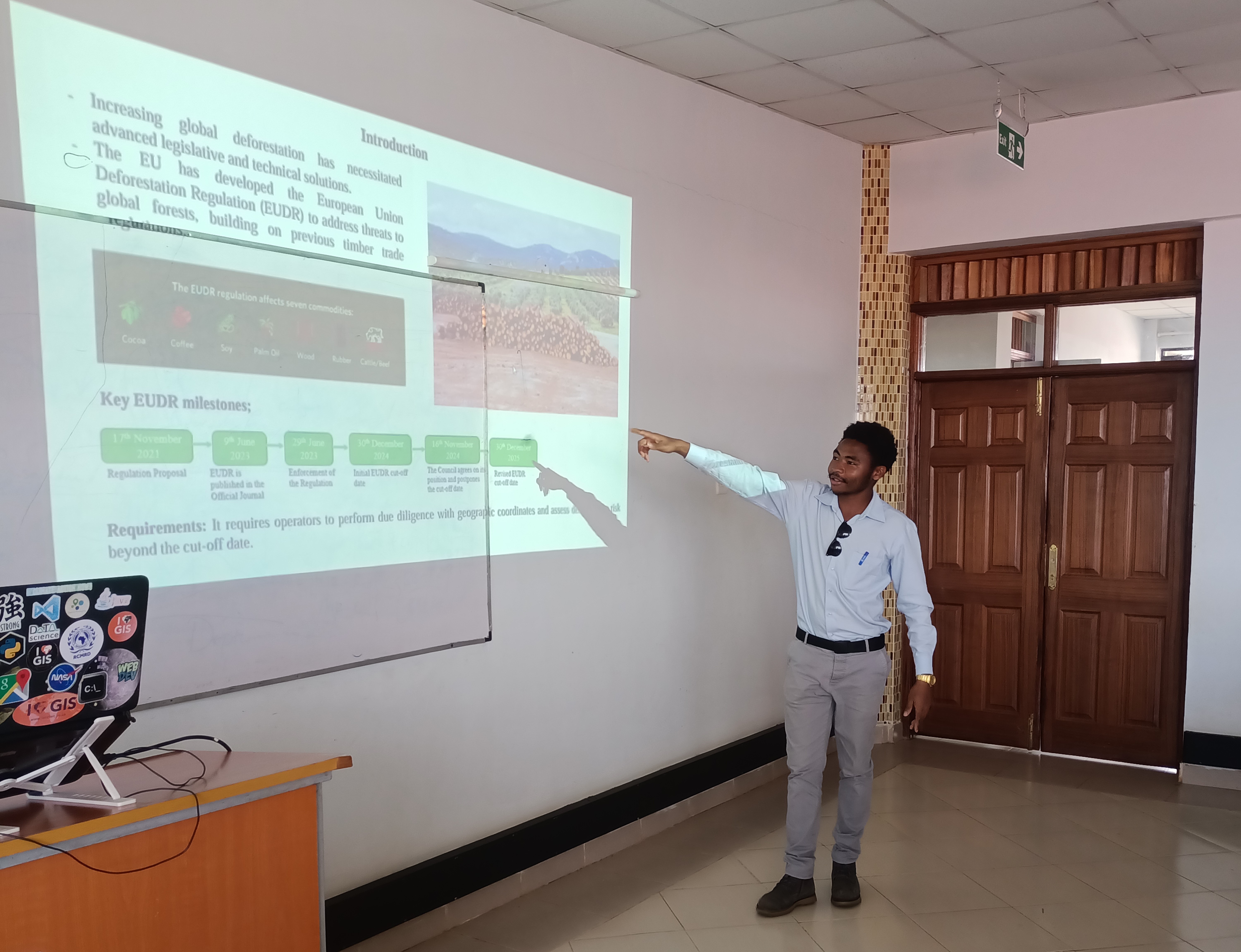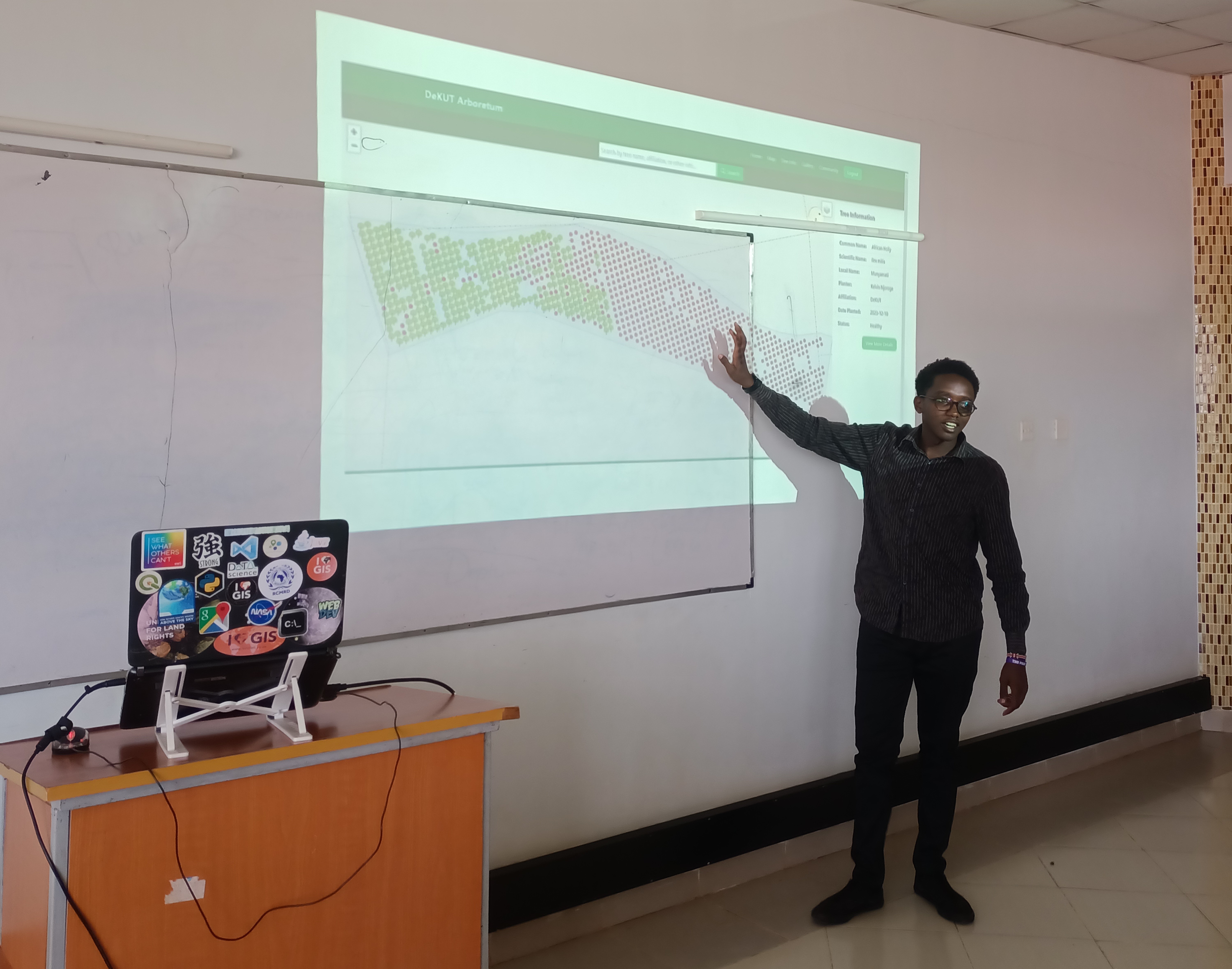
Prof. Andreas (from the RUHR University Bochum) presenting on a Retrospective-Prospective Urban Land Policy case study

Anna Bartels (from the RUHR University Bochum) presenting on Crop Segmentation within Muringato Catchment

Dr. Henryk Hodam (from the RUHR University Bochum & ESERO) presenting on the development of Remote Sensing Learning materials

Mr. Brian Kibet presenting on assessment of climate change and its impacts of crop phenology

Mr. Peter Thuku presenting on EUDR Compliance: A Web GIS Solution for coffee farmers in Muringato Catchment

Ms. Elizabeth Muraya presenting on the Development of an Early Warning System (EWS) for Muringato Maize Farmers

Mr. Ivan Kipruto presenting on the development of the Interactive Tree Management System (ITMS)

The RUHR University Bochum Team showcasing the various Remote Sensing tools developed